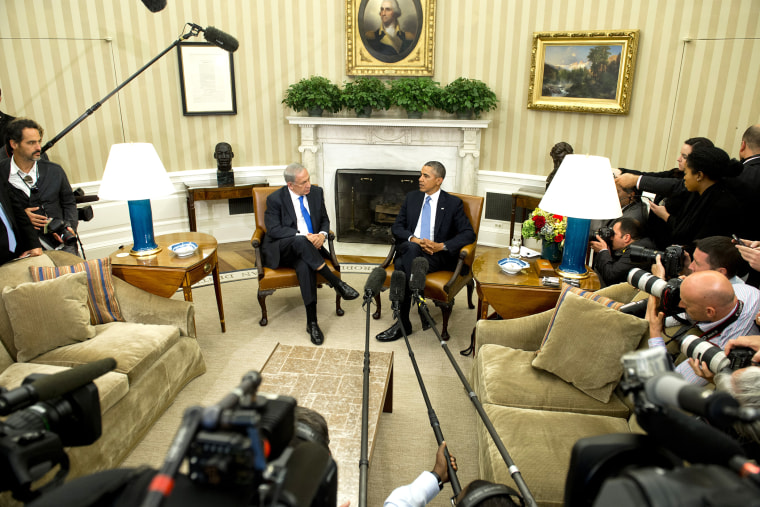After reports surfaced last week that the NSA spied on Israel, and intercepted some communications between Israeli officials and members of Congress, Republican presidential hopeful Ben Carson called the espionage "truly disgraceful." He had no similar concerns earlier in the year following reports Israel spied on the United States.
Mike Huckabee, meanwhile, perhaps looking for some attention, went considerably further during an interview with Fox News.
"The real issue is whether or not the president was aware that members of Congress were being tapped. If that's the case, and the president was aware of it, Sandra, I believe that this is not only unconstitutional, I believe this is an impeachable offense. "Richard Nixon resigned for less than this."
Actually, no, he didn't.
On Capitol Hill, the response was far more muted -- congressional Democrats seem quite confident that there is no real controversy here -- though Republicans on the House Intelligence Committee and the House Oversight Committee seem likely to hold hearings on the matter.
If it seems as if Republicans are going through the motions, struggling to pretend to be outraged, that's probably because they are.
Look, U.S. intelligence agencies spying on members of Congress would, in fact, be a very serious story. But that's really not what we've learned.
As we discussed last week, Israel spied on us, hoping to disrupt international nuclear diplomacy with Iran. Those efforts failed. Israel then launched a campaign to derail American foreign policy, prompting, according to the Wall Street Journal's reporting, U.S. officials to keep tabs on what Israel was up to.
In other words, a foreign government spied on the United States, and then the United States spied on a foreign government trying to undermine our international efforts.
The problem in this specific case is that Israel wasn't alone. Congressional Republicans sided with a foreign government to derail American foreign policy, so when the NSA spied on those trying to undermine our policy, they also intercepted messages from American lawmakers.
And as we talked about on Wednesday, what are U.S. intelligence officials to do when it's American members of Congress who are coordinating -- and to a degree, partnering -- with a foreign government to undermine the foreign policy of the United States? Such a dynamic has no real precedent in the American tradition, but in the Obama era, radicalized congressional Republicans have made this rather commonplace.
For the NSA, the solution apparently meant threading a needle: the agency continued its surveillance of Israel while Israeli officials tried to kill U.S. policy, which in practice meant intercepting communications between Israel and American lawmakers. The agency would report on its findings, but it also "removed the names of lawmakers from intelligence reports," "weeded out personal information" related to congressional Republicans, and kept out "trash talk" in which members made private, personal attacks against Obama administration officials during their talks with the lawmakers' foreign allies.
In other words, the NSA appears to have deliberately spied on Israel, not members of Congress who talked to Israel about how best to scuttle American foreign policy.
There continues to be a lingering irony to the Republican complaints. As we discussed, this is, after all, a party that generally supports an expansive surveillance state, especially when it comes to keeping tabs on foreign governments trying to subvert the United States. As the argument goes, if that means American communications with foreigners get caught up in the net, so be it.
But when it's Republican members of Congress who were talking with foreigners about sabotaging U.S. policy, apparently their perspective changes quite a bit. It's funny how that works, isn't it?
